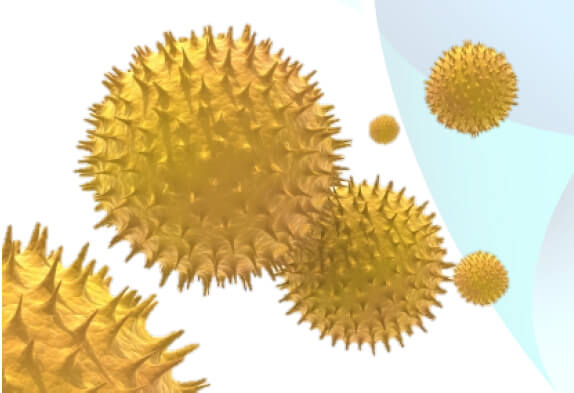Patient Information on Pollen Allergy
Who is this information for?
This information is for children and adults with a pollen allergy.
What is a pollen allergy?
An allergen is an irritant that may result in symptoms such as allergic rhinitis (refer to Allergic Rhinitis patient information sheet). Pollen is a known allergen. Patients with asthma may find their asthma is exacerbated as a result of a pollen allergy. Symptoms may occur in a particular season (usually due to grass, weed or tree pollens) or throughout the year as different flora flower throughout the year.
What treatment options are available to manage pollen allergy?
- Aeroallergen avoidance/minimisation
- Symptom control medications
- Allergen specific immunotherapy
What are the aeroallergen avoidance strategies to manage pollen allergy?
- Keep windows closed at peak pollen times eg in the evening when airborne pollens descend to lower altitudes. This includes car windows.
- Wear glasses or sunglasses to prevent pollens entering the eyes.
- Consider wearing a mask over the nose and mouth to prevent inhalation of pollens at peak times. Pollen is always at its highest in the morning and early evening. Pollen counts in the media can also be useful.
- Do not cut grass yourself.
- Keep windows closed when grass has been mown.
- Use air-conditioning if possible.
- Install car pollen filters if possible.
- Bring washing in before pollen descends on to it in the early evening.
- Consider using nasal air filters.
What medications are available to manage a pollen allergy?
- Antihistamines (tablets or nasal spray): effective in managing histamine-related symptoms such as itching, watery nose/eyes and sneezing. This medication is not helpful for nasal blockage.
- Nasal steroid spray: often used as first line management in children aged over 2 and adults, mainly to treat nasal congestion or blockage.
- Nasal irrigation: washing out the nasal cavity has been shown to reduce the amount of allergens in the nose (refer to Nasal Irrigation patient information sheet).See information about Sino – Nasal Outcome Test
Is allergen specific immunotherapy available for pollen allergy?
Allergen specific immunotherapy is available to manage pollen allergy in severe cases. This involves exposure to a small amount of the allergen in order to induce tolerance. Specific immunotherapy is the only treatment that modifies the immunological response to allergens rather than just treating the symptoms. A typical treatment may require monthly injections over 3-5 years or giving the allergen sublingually (under the tongue) on a daily basis for 2-3 years. Immunotherapy is usually considered in older children and adults when symptoms are not well controlled with other measures

Concerns or questions?
You can contact your ENT Specialist at the Melbourne ENT Group (MEG):
- Phone: 1300- 952-808
- Email: admin@melbentgroup.com.au
- Website: www.melbentgroup.com.au
Your GP is also the best contact for ongoing care and concerns.